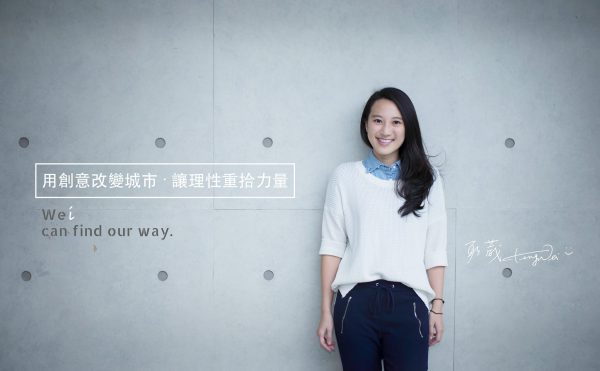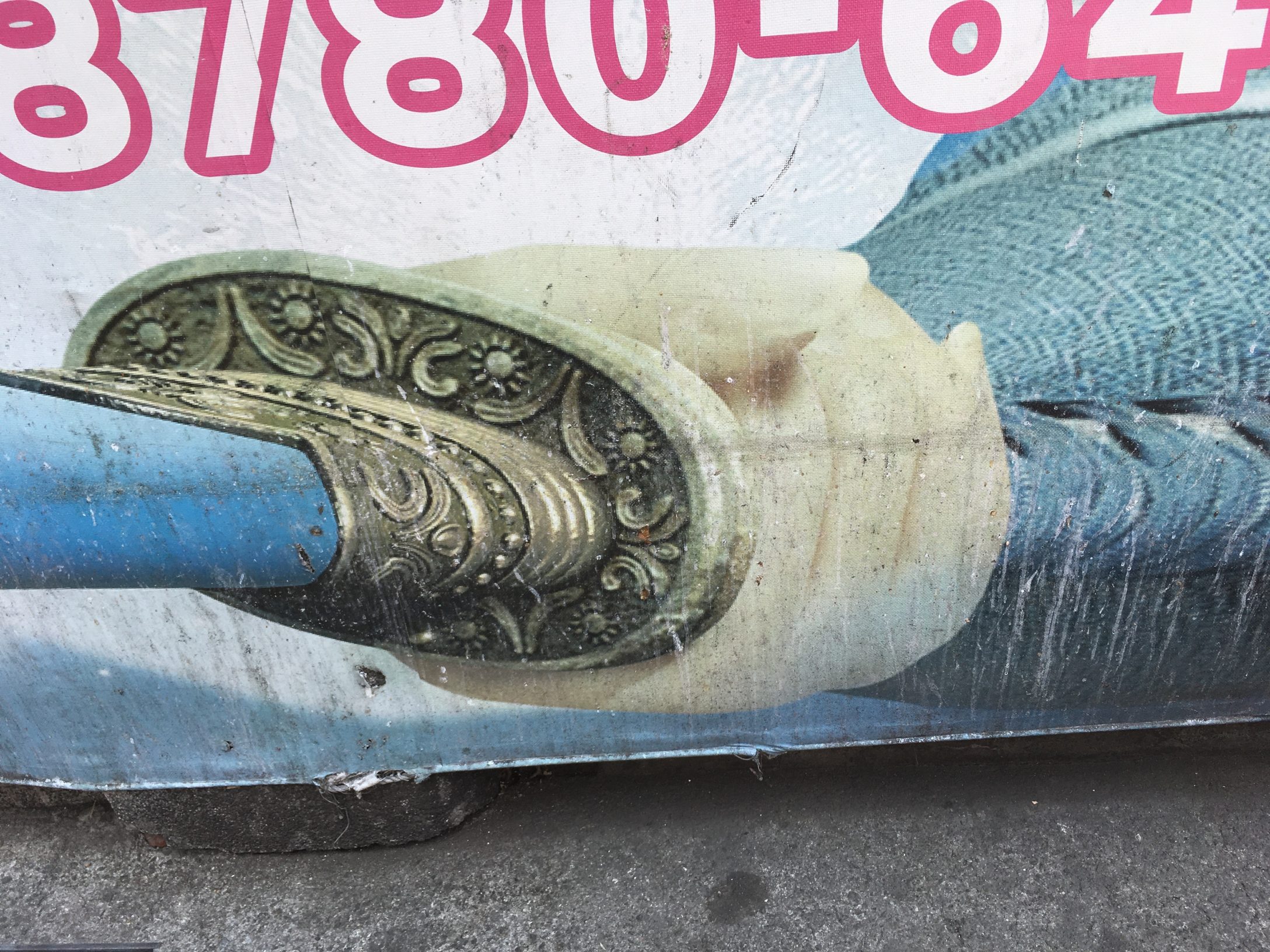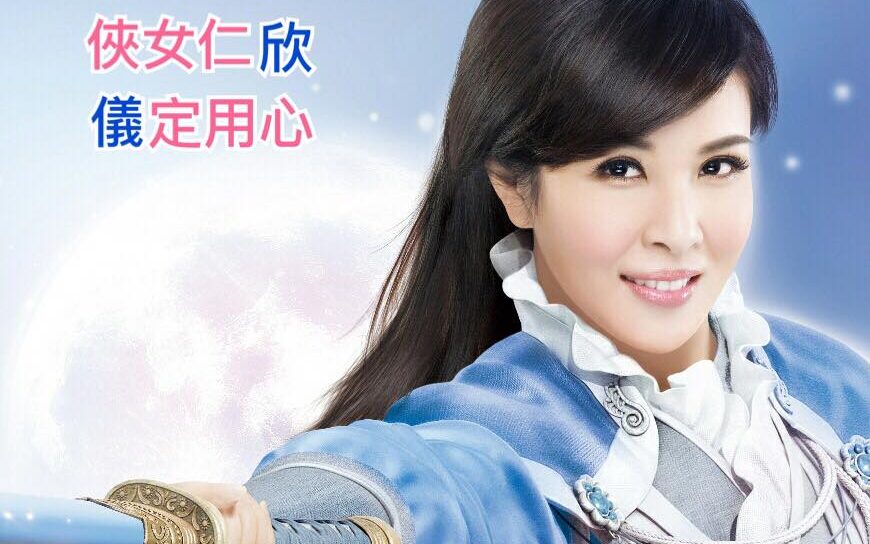It became very clear in 2016 elections that the Kuomintang, which was Taiwan’s sole ruling party during the authoritarian period, really needed to hire better people to handle advertising. For example, despite their bleak electoral prospects in 2016, the party saw fit to put out the following ad for its presidential candidate, Eric Chu.
The images are strangely haunting and dreamlike: The image of Eric Chu dancing alongside two children with bowl cuts in the manner of a children’s show, captions next to one child reading “I am the big brother” (我是哥哥), a caption next to the other child reading “I am the younger brother” (我是弟弟), and a caption next to Chu reading, “I am Eric Chu” (我是朱立倫). Then Chu announcing at the end, “Exercise is power!” (運動就是力量), a riff off of his 2016 campaign slogan, “Taiwan is power!” (台灣就是力量).
[!!—Ed.]
To this day, I still wonder who the target audience for this ad was, exactly. It cannot have been me, and yet I’m absolutely sure I am the only person in all of Taiwan who remembers this ad at all; the images from it are seared into my brain.
The Taiwanese media, which is generally sensationalist, sometimes claims that the Kuomintang is the world’s wealthiest political party in Taiwan, even after democratization. Obviously this is nearly impossible to prove; I have never seen a comparison of the Kuomintang’s wealth alongside that of the thousands of other political parties in the world. Yet it is clear that the Kuomintang retains a great deal of wealth from land and property seizures during the one-party authoritarian period. If so, you’d think they would be able to hire better designers and filmmakers to shoot their ads.
Attempts by the Kuomintang to rebrand have not been successful. Heedless of the cautionary example of Boaty McBoatface, the Kuomintang recently held a contest to design a new mascot. The resulting mascot was this, which the Taipei Times describes as, “a rubber chicken with a baby-faced blue squiggle on its chest and the K[uomintang]’s emblem on its rump,” but which may also be interpreted as a depiction of a bird-like woman with blue hair wearing a chicken suit.

The blue squiggle was frequently compared to a maggot on the Internet. This led to accusations that the 18-year-old designer of the mascot, Wu Ching-ping, was attempting to mock the Kuomintang because “blue maggot” (藍蛆) is a derogatory term for Kuomintang supporters, and blue and white are the party colors of the Kuomintang.
The design was rejected out of hand by current Kuomintang chair Wu Den-yih as unsuitable. The summary dismissal of a popularly chosen mascot may not be good optics for the Kuomintang, a former authoritarian party accused of continued disregard for democratic institutions. One is also free to wonder whether Wu, as the current party chair, may have feared being made to wear the chicken suit.
The menacing symbols of authoritarianism have a way of becoming kitsch almost overnight, and the Kuomintang is a striking example at all level of politics, all the way from presidential and legislative elections to down to city council, county head, and mayoral elections. While more attention goes to larger elections, let’s focus on the grassroots campaigns of city council seats, elections for which will be taking place later this year.
City council and mayoral positions are powerful positions in Taiwan. As Taiwan is juridically still a province of the Republic of China (though it has never been a part of the People’s Republic of China), Taiwan’s mayors and county heads function more like state governors in other polities. City councillors are also of outsize importance, because Taiwan is one of the world’s most densely populated nations, meaning that city councillors represent unusually large constituencies here.
It is not surprising, then, that competition for electoral places has been fierce among members of the Kuomintang, a party with a strong history of not only authoritarianism, but also political corruption. This can be seen in my own neighborhood, on a street marking the border between the Daan district and Xinyi district in Taipei.
Taipei is Taiwan’s political, economic, and cultural center. There’s a saying among young people that Taipei is a “Tianlongguo” (天龍國)—or “Celestial Dragon Country”—of its own; the term “Celestial Dragon Country” comes from the Japanese manga One Piece, in which the self-proclaimed “Celestial Dragons” (天龍) are a race of nobles who travel to the world outside of their country in space suits, so that they can avoid breathing the air of the common masses. Thus the residents of Taipei are considered so affluent that they travel more often to other countries than they do to other parts of Taiwan.

Daan and Xinyi are the most affluent districts of Taiwan’s most affluent city. You could say that it’s the Tianlongguo of Tianlongguo. With such a concentration of resources in Daan and Xinyi, officially parts of Taipei City Election District 3 and 6, it is not surprising that competition among Kuomintang candidates in the area has been quite fierce. Even so, their campaign designs have left something to be desired.
In the wake of the youth-led 2014 Sunflower Movement, the Kuomintang realized that it had lost the youth vote. Continuing defeats through to 2016 indicated a continuing decline in public favor.
 Geng Wei campaign ad (via Facebook)
Geng Wei campaign ad (via Facebook)Since then, the Kuomintang has desperately emphasized its young political candidates, and many of those running in Daan and Xinyi were self-proclaimed youth candidates.
Taiwanese political ads often play up the academic and work qualifications of the candidate. Ads for political candidates often end up looking much like those for doctor’s clinics, with qualifications listed in terms of educational attainments.
If the candidate’s profession is a respectable one, the symbolic garb of his or her profession might appear in ads, such as doctors wearing white lab coats, or lawyers wearing ceremonial court robes. Though this was usually not the case with any Kuomintang ads I saw in Daan or Xinyi, younger candidates with perhaps less work experience sometimes have campaign ads featuring themselves playing sports or otherwise engaged in some kind of physical activity in order to convey an image of youthful vitality.
 Lee Bo-Yi campaign ad (via Facebook)
Lee Bo-Yi campaign ad (via Facebook)With Taiwan currently having a female president, female political participation is on the rise. This is even true of the right-wing Kuomintang, which has historically been dominated by male politicians. In 2016 elections, current President Tsai Ing-Wen briefly competed with the Kuomintang’s first female chairwoman in history—Hung Hsiu-Chu. Hung was replaced by Eric Chu because her frequent gaffes, outlandish statements, and arch-reactionary worldview prevented her from becoming a viable presidential candidate.
Kuomintang candidates Geng Wei (27), Zhong Pei-jun (33), Lee Bo-yi (27), and Wang Zhi-ya (age unknown) have played up their youth. Contrastingly, Wang Zheng-de (63) attempted to differentiate himself from youth candidates he was competing with through campaign ads with the mixed English-Chinese slogan “Experience GO!” (經驗 GO!).
Wang Zhi-ya would come under censure because netizens discovered after comparing photos of her and her campaign ads that Wang’s ads were heavily photoshopped to make her appear younger, suggesting that she was not in fact a youth candidate. This made her the object of ridicule among many netizens, seeing as Wang likely hoped to attract votes by depicting herself as a young Kuomintang candidate.

In the strangest political event of 2016, Hung, the first female chair of the Kuomintang, responded to criticism of her attempts to rig elections for the chair of her party by publicly revealing that her iconic red hair is actually a wig. This obliquely demonstrates the pressure on female politicians to appear younger in Taiwan.
To return to city councillors, Wang Zhi-ya ran a large number of ads around my neighborhood, including one on a billboard in which an new ad was stacked on top of a older one. As a result, when one looked at the ad from a certain angle in the middle of the night, it looked as though Wang was some sort of triclops.
 Photo credit: Brian Hioe
Photo credit: Brian HioeI liked to think of this as a sort of werewolf-like transformation. This ad was later replaced with an ad for a Democratic Progressive Party (DPP) candidate, the Kuomintang’s main rival, which displaced the Kuomintang to control both the presidency and legislature for the first time in Taiwanese history in 2016. It was the neighborhood’s first ad for a DPP candidate I’ve seen in recent months. Like many highly affluent areas around the world, Daan and Xinyi generally lean in a politically right direction.
Wang Hsin-yi, well-known eccentric of the Kuomintang, ran a campaign ad in which she carried a Japanese katana and a campaign slogan that proclaimed her to be “the female knight-errant with a benevolent heart who understands your heart” (俠女仁心,懂得你心)–referring to the wandering martial artists found in wuxia martial arts novels referred to as xia (俠), usually translated into English as “knight-errant”.

Wang is notably fond of cosplay in campaign ads, having taken to dressing up as Wonder Woman, a Chinese princess, in other forms traditional Chinese clothing, etc., if only in photoshop form. Apart from the fact that ancient Chinese martial artists probably would not carry katana but Chinese broadswords, her famous ad with the katana reveals on close examination that her fingers seem jarringly flat and do not look like they are actually holding a sword, indicating that the katana was probably photoshopped in.
 Photo credit: Brian Hioe
Photo credit: Brian HioeBut Wang is not the only Taiwanese politician fond of cosplay. Contemporary politicians both left and right and even former presidents have indulged in public cosplay. Legislator Huang Kuo-chang of the New Power Party dressed up as Roy Mustang of the Japanese anime Fullmetal Alchemist, and former president Lee Teng-Hui dressing up as Edajima Heihachi from the Japanese manga Sakigake!! Otokojuku.
Poorly photoshopped ads notwithstanding, Wang Hsin-yi has been a local city councillor for years, and will likely continue in her position. This is unfortunate, given that Wang is one of the most adamantly homophobic of the Kuomintang’s current slate of local politicians, having played a key role in organizing efforts by conservative church groups to recall legislators in support of gay marriage.
The incredible kitschiness of the Kuomintang’s local election efforts came to a head at its 2018 National Congress. During this ceremony, party chairman Wu Den-yih dressed as a coach, while local election candidates dressed as baseball players and pretended to hit home runs with Kuomintang-branded baseballs and bats. Each time they swung, an MC screamed things like “HASTA LA VISTA! This is a home run!” (HASTA LA VISTA! 這是一支全壘打!) or “This is a home run to Mars!” (這是一支打上火星的全壘打!), while Kuomintang heavyweights such as Hung Hsiu-Chu, Eric Chu, and former president Ma Ying-Jeou looked on. During this ceremony, Wu also took the time to autograph a Kuomintang-branded basketball, which people joked look like an evil eye when I posted it on my Facebook.
 Screenshot, Kuomintang 2018 National Congress (via Facebook)
Screenshot, Kuomintang 2018 National Congress (via Facebook) Screenshot, Kuomintang 2018 National Congress (via Facebook)
Screenshot, Kuomintang 2018 National Congress (via Facebook)Why, then, does the Kuomintang, with all its resources, run such incredibly schlocky ads and conduct such terrible advertising? That remains a mystery to me. Good aesthetics does not necessarily mean good politics, as evidenced by the current DPP administration under Tsai Ing-Wen, for example, which for the most part had excellent design during the 2016 election.
Despite its resources, the Kuomintang is at risk of extinction, not only through being edged out by the DPP, but also by the younger, more left-wing third parties that emerged after the Sunflower Movement, such as the New Power Party and the Social Democratic Party. These parties tend not only have successful design, but also employ Internet-age humor in their advertising, as observed in many ads that use Internet memes or have a self-mocking tone.
As for me, despite coming from a Kuomintang family myself, I have absolutely no fondness for the Kuomintang, a party which I see as having failed to adequately answer for the crimes of its past and which continues to advance politics that can only be described as reactionary in the present. I feel an no small amount of schadenfreude watching the party’s dissolution before my eyes. Yet I can’t deny that I think something will have passed from the world with the disappearance of the unending kitschiness of the Kuomintang’s political ads.






